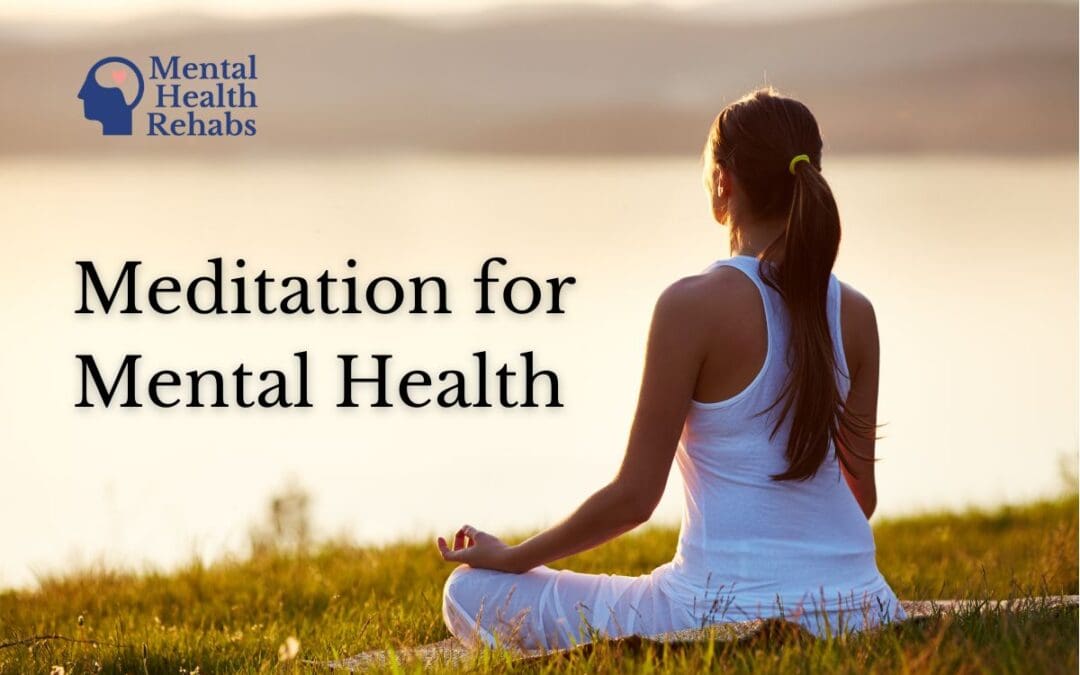Mental Health and Meditation: A Path to Inner Peace and Well-Being
In today’s stressful world, maintaining mental health is more important than ever. One powerful and accessible tool to support emotional balance, reduce anxiety, and boost overall well-being is meditation. This ancient practice has gained widespread recognition for its scientifically proven benefits on mental health.

What Is Meditation?
Meditation is a mind-body practice that involves focusing your attention, calming your mind, and achieving a state of relaxed awareness. It can take many forms, such as guided meditation, mindfulness meditation, loving-kindness meditation, or breath awareness.
Unlike simply relaxing, meditation actively trains the brain to respond differently to stress and negative thoughts, helping cultivate resilience and clarity.
How Meditation Benefits Mental Health
1. Reduces Stress and Anxiety
Meditation helps lower the levels of cortisol, the hormone responsible for stress. Regular practice teaches your mind to detach from anxious thoughts and focus on the present moment, which calms the nervous system.
2. Improves Emotional Health
Meditation encourages a positive outlook by promoting self-awareness and emotional regulation. It can reduce symptoms of depression and increase feelings of happiness and compassion.
3. Enhances Concentration and Attention
Practicing meditation sharpens focus and mental clarity, improving productivity and memory retention.
4. Supports Better Sleep
By calming the mind and relaxing the body, meditation can help people fall asleep faster and enjoy deeper, more restorative rest.
5. Increases Self-Awareness
Mindfulness meditation helps you become more aware of your thoughts and feelings without judgment, fostering greater self-understanding and healthier responses to life’s challenges.
Popular Meditation Techniques
1. Mindfulness Meditation
Focus on your breath or bodily sensations while calmly acknowledging thoughts or feelings as they arise. The goal is not to eliminate thoughts but to observe them without attachment.
2. Guided Meditation
A teacher or app leads you through a meditation session, often with visualizations or instructions to relax various parts of the body.
3. Loving-Kindness (Metta) Meditation
Focus on cultivating compassion and kindness toward yourself and others by silently repeating phrases like “May I be happy, may I be healthy.”
4. Transcendental Meditation
Involves silently repeating a mantra to help the mind settle into a deep state of restful awareness.
How to Start Meditating: Tips for Beginners
Set Aside Time
Start with just 5–10 minutes a day. Consistency is more important than duration.
Find a Quiet Space
Choose a comfortable and distraction-free environment.
Sit Comfortably
You don’t have to sit cross-legged; any comfortable seated position works.
Focus on Breath or Guided Audio
If your mind wanders, gently bring your focus back to your breath or the guide’s voice.
Be Patient
It’s normal to feel restless or distracted at first. Meditation is a skill developed over time.
Using Apps to Support Meditation Practice
Many apps make meditation accessible with guided sessions and tracking tools. Popular choices include:
Headspace: User-friendly with courses on stress, sleep, and focus.
Calm: Offers guided meditations, sleep stories, and breathing exercises.
Insight Timer: Large library of free meditations and music tracks.
Smiling Mind: Designed for all ages, including kids and teens.
Meditation and Professional Mental Health Care
While meditation can significantly improve mental health, it is not a substitute for professional therapy or medication when needed. For people experiencing severe anxiety, depression, or other mental illnesses, meditation should be part of a comprehensive treatment plan.
The Science Behind Meditation
Studies show that regular meditation can change brain structure, increasing grey matter in areas linked to learning, memory, and emotional regulation. It also lowers activity in the amygdala, the brain’s fear center, helping reduce stress responses.
Incorporating Meditation Into Daily Life
Morning Routine: Start your day grounded and focused.
Work Breaks: Use brief meditation to reset during busy days.
Before Sleep: Meditate to unwind and improve sleep quality.
Mindful Walking: Combine gentle movement with meditative awareness.
Journaling: Reflect on your meditation experiences and emotions.
Final Thoughts
Meditation offers a simple yet powerful tool to enhance mental health and bring calm to the chaos of modern life. By committing a few minutes daily to this practice, you can cultivate resilience, emotional balance, and a deeper connection to yourself and others.
Start small, stay consistent, and experience the transformative effects of meditation on your mental well-being.